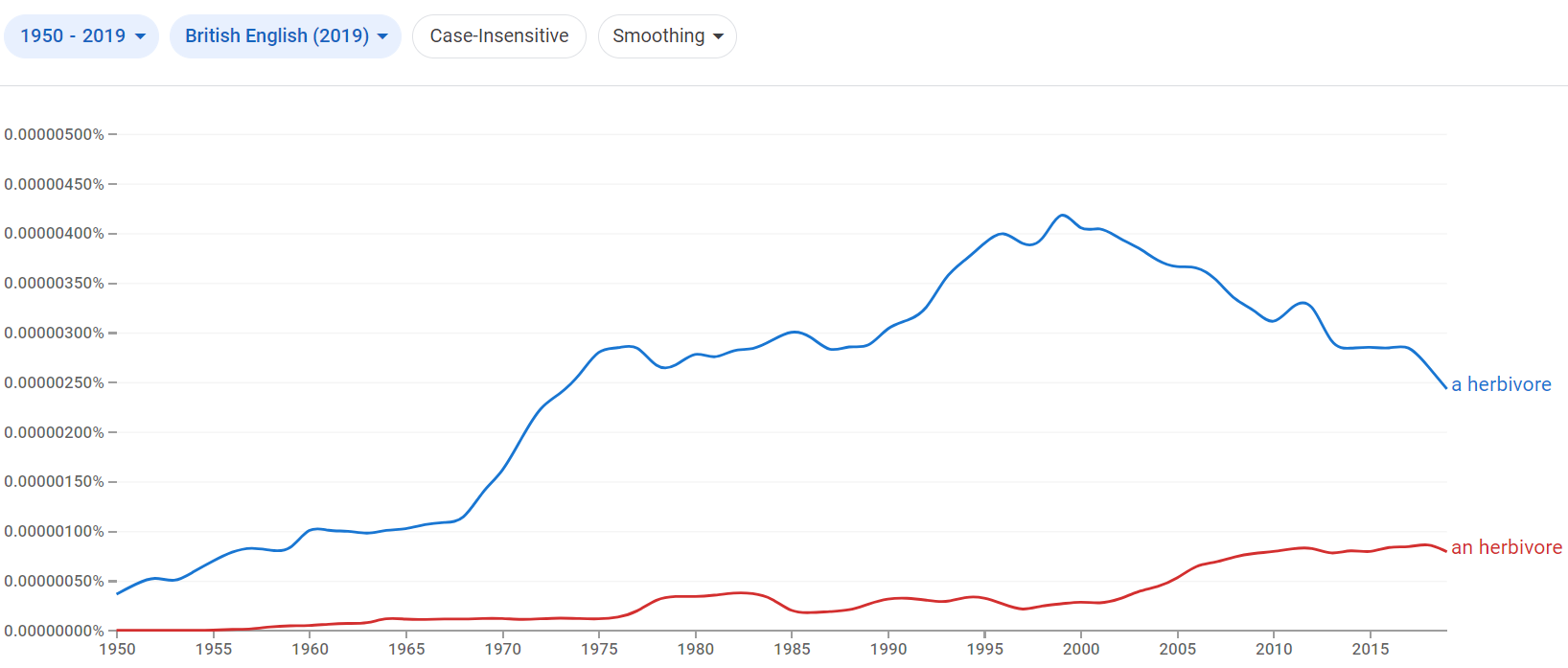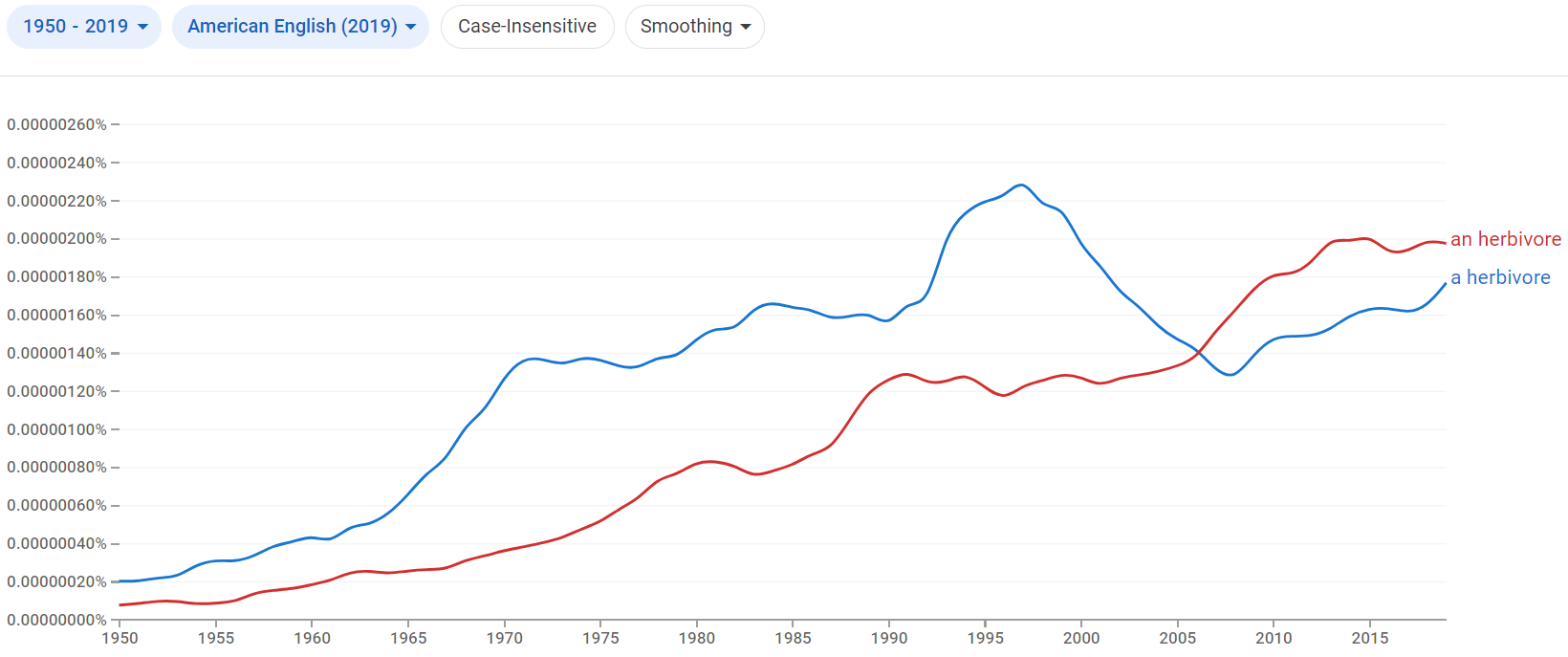The British say a herbivore since the "h" is silent. An American English speaker, however, typically chooses the article (a/an) that best suits his or her own pronunciation.
The British say a herbivore since the "h" is sounded. An American English speaker, however, should choose the article (a/an) that best suits his or her own pronunciation.
The indri is a/an herbivore that eats leaves, flowers, and seeds.
Be aware that the rule for using "a" or "an" is based on the sound made by the following word—not on how it's spelled.
Becoming a/an herbivore always involves some kind of specialization.

Source: Google Books Ngram Viewer
Compare:

Source: Google Books Ngram Viewer
Follow the same convention when using these derived forms:
The plant was eaten by a/an herbivorous animal.
Most American choose the article "an" with the words herb and herbal (the "h" is commonly silent). British English speakers, by contrast, usually pronounce the "h", and therefore say "a herb" as well as "a herbal...".

